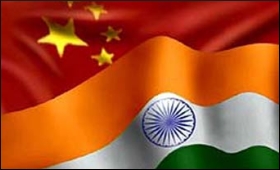|

|
India, China helping decrease global inequality: IMF
|
|

|
|
| Top Stories |
 |
|
|
|
Arun Kumar | 13 Sep, 2011
Even as inequality is getting worse in many countries, the rise of India and China has contributed to the decrease in global inequality, according to the International Monetary Fund (IMF).
"As the two giants -- India and China -- move far above their past income levels, the mean income of the world increases and global inequality begins to decline," the IMF's Finance and Development magazine says, looking at the causes of rising income
inequality around the world.
"It is somewhat ironic that these hopeful developments coincide with the global financial crisis," it says in its September issue. But "even in the middle of the crisis...decreasing global inequality, driven by high rates of growth and higher living standards of populous and still relatively poor economies like China and India, represents an epochal change."
"It reflects the newfound prosperity of millions of people. And as the world becomes more integrated, the political significance of lower global inequality may come to outweigh that of rising inequalities within nations," the IMF analysts said.
"Country-specific studies reach the same conclusions," IMF said noting an impact study of bank branches in rural India found that output increased and poverty declined with greater access to finance and another showed that greater access to bank branches lowered income inequality in the US.
Recent IMF analysis using volume and interconnectedness measurements to rank the world's top 25 systemic trading centres saw China moving up nine places between 1999 and 2009 to tie with the US as the systemically most important trading centre.
India and Brazil moved up seven and three places to rank, respectively, fourteenth and nineteenth worldwide; and Russia and Turkey joined the list.
By contrast, France, Canada, and Switzerland have each moved down three places to sixth, eleventh, and seventeenth, respectively.
An IMF analysis also implies that the growth push is expected to be most pronounced for some Asian countries -- such as India and China -- and somewhat small but still positive for most eastern European countries.
Emerging market economies, led by China, are thus turning out to be systemically important trading partners, alongside key advanced economies, IMF analysts said.
|
|
|
| |
|
|
|
|
|
|
|
|
|
|
|
|
|
|
| |
| Customs Exchange Rates |
| Currency |
Import |
Export |
US Dollar
|
84.35
|
82.60 |
UK Pound
|
106.35
|
102.90 |
Euro
|
92.50
|
89.35 |
| Japanese
Yen |
55.05 |
53.40 |
| As on 12 Oct, 2024 |
|
|
| Daily Poll |
 |
 |
| Do you think Indian businesses will be negatively affected by Trump's America First Policy? |
|
|
|
|
|
| Commented Stories |
 |
|
|
|
|
|
| |
|